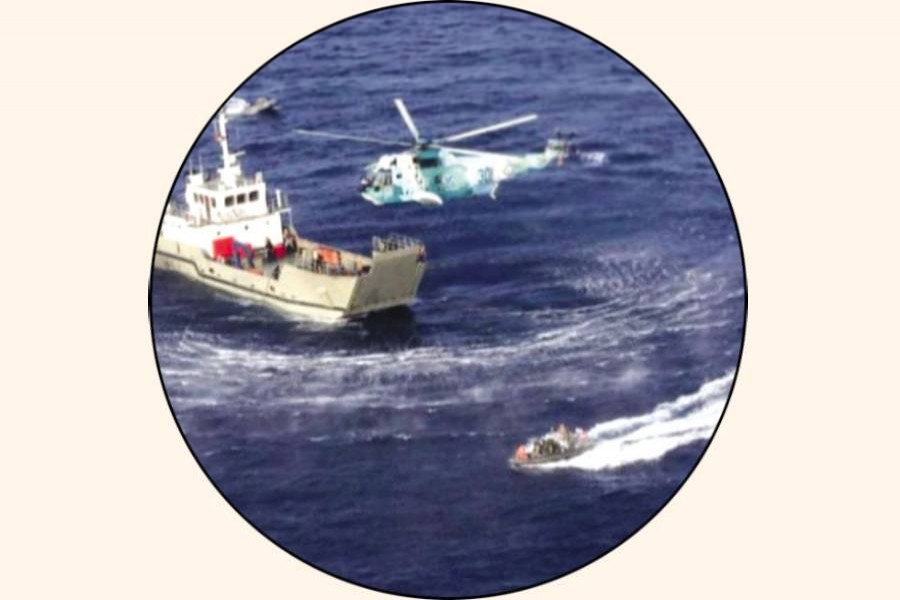The US House speaker Nancy Pelosi's Taiwan trip has left the diplomatic community wondering if it marks a shift from the US's long-held one-China policy. Notably, during the last four decades plus years this has been the guiding principle of US's China policy.
Though the Biden administration officially distances itself from Pelosi's Taiwan trip, the mainland China is hardly convinced. In fact, it has vehemently reacted against the event saying it was like 'playing with fire'. Meanwhile, China has started military exercises at six different sites close to Taiwan's territorial waters as well as airspace.
Historically, the People's Republic of China (PRC) considers Taiwan as its own territory. But after the Chinese communist party took control of the mainland China in 1949, the country's former ruler and leader of the Kuomintang, the Chinese Nationalist Party, Chiang Kai-shek along with his followers fled to Taiwan, formerly known as Formosa. The Kuomintang's rule of Taiwan was basically a military dictatorship. But still to continue the policy of containment of communist China, the post-World War II US governments had been maintaining diplomatic relations with Taiwan.
But the policy changed during the Nixon presidency that culminated in the US's then-National Security Adviser, Henry Kissinger's secret visit to Beijing in July 1971. Ultimately, in 1979, the US changed its earlier policy of recognising Taiwan as the sole representative of China and shifted its diplomatic recognition to the communist-ruled mainland China.
The rest is history. The US then cut off its formal relations with Taiwan, withdrew its embassy from there replacing it with a non-governmental body, the so-called American Institute in Taiwan. Actually, this Institute was informally acting as US embassy and its staff members were people who resigned from US government's diplomatic service.
Small wonder that till then the US government had been tacitly recognising the PRC's idea of reunification of Taiwan with mainland China. But with the installation of a democratically elected government in Taipei, the capital of Taiwan, in 1995, the US's outlook towards the island gradually underwent changes.
The Republican House Speaker Newt Gingrich's 1997 visit to Taiwan during the then-Clinton administration was a clear signal of US's rethinking of one China policy. However, since a Democratic government was then in office, a Republic Congress leader's visit to Taiwan did not have much diplomatic significance.
Though, as always, PRC reacted to that visit.
But the current visit by a Democrat House of Representative leader when a Democratic administration is in the White House, this is quite a different story.
Beijing's concern and strong reactions to the visit are understandable. And though the US government visibly maintains an ambiguity on China policy, the recent utterances by the US leaders point to their growing levels of commitment towards Taiwan. Mention may be made here of President Biden's recent comment (made in May 2022) on what his government would do in case China invaded Taiwan. Biden's words were unambiguous in response as he asserted that US would then intervene militarily.
As a follow-up of these developments, the US president's efforts at showing that his administration has nothing to do with the Pelosi's trip to Taiwan is not going to pacify an irked China.
However much the US and its allies might want to demonstrate that the US's, or for that matter, the West's, changing attitude towards Taiwan has to do with the island country's functioning as a vibrant democracy or that after what they think had happened to Hong Kong following China's crackdown on its democracy movement there, the fact remains that it is the old empire striking back to regain its global hegemony again.
Previously, it was saving the people of the region from communism.
Now the concern is more about a China that is going to overtake the USA economically within a decade than about communist China suppressing democracy.
For there are countries around the world where democracy in the Western sense of the term does not exist, but the USA and its Western allies have no qualms about maintaining strategic relations with them.
Many political watchers would like to suggest that following Putin's Russia launched its military operation in Ukraine, the US and the West have assumed the role of protecting smaller countries from the aggression of bigger, militarily superior, neighbours. Now it is Ukraine and tomorrow it might be Taiwan.
So, the US, as it did during its heyday in the past, has now chosen to play a more assertive role in the international arena to protect smaller nations and, of course, in the name of democracy.
But the memories of the people are not yet so dim.
The experiences of the Iraqi people at the fag end of the 20th century and in the early 21st century, or those of the Vietnamese in the 60s and early 70s of the twentieth century or the misfortunes that befell the Afghan people following the 9/11's terrorist attack on Twin Tower in New York are still fresh in public memory. Now the fear is that the world might be witnessing the rise of yet another era of confrontation between the West and the rising China including the much reduced Russia both economically and militarily.
But the danger is all these countries on either side of this new political divide are major nuclear powers. This rude fact should leave a sobering effect on the Western powers led by the USA to reclaim the old hegemony on the affairs of the world.
sfalim.ds@gmail.com


